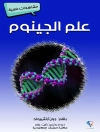Biotechnological advancements during the last half-century have forced humanity to come to grips with the possibility of a post-human future. The ever-evolving opinions about how society should anticipate this biotechnological frontier demand a language that will describe our new future and discuss its ethics. After the Genome brings together expert voices from the realms of ethics, rhetoric, religion, and science to help lead complex conversations about end-of-life care, the relationship between sin and medicine, and the protection of human rights in a post-human world.
With chapters on the past and future of the science-warfare narrative, the rhetoric of care and its effect on those suffering, black rhetoric and biotechnology, planning for the end of life, regenerative medicine, and more, After the Genome yields great insight into the human condition and moves us forward toward a genuinely humane approach to who we are and who we are becoming.
विषयसूची
Acknowledgments
Editors’ Introduction: A Language for Our Biotechnological Future: Rhetoric, Religion, Science, and Ethics (Michael J. Hyde and James A. Herrick)
1. Faith in Science: Professional and Public Discourse on Regenerative Medicine (Tristan Keys, Nancy M.P. King, and Anthony Atala)
2. From Arrowsmith to Atwood: How Did We Come to Disrespect Science? (Ronald M. Green)
3. The ‘Warfare’ of Science and Religion and Science’s Ethical Profile (Thomas M. Lessl)
4. Is There a Human Nature? An Argument against Modern Excarnation (Jean Bethke Elshtain)
5. Crossing Frontiers of Science: Trespassing into a Godless Space or Fulfilling Our Manifest Destiny? (Leah Ceccarelli)
6. The Angels and Devils of Representing Prozac (Tod Chambers)
7. ‘Leave Your Medicine Outside’: Bioethics, Spirituality, and the Rhetoric of Appalachian Serpent Handlers (Bill J. Leonard)
8. Biovaluable Stories and a Narrative Ethics of Reconfigurable Bodies (Arthur W. Frank)
9. Blacks and the Language of Their Biotechnological Future (Ezra E. H. Griffith)
10. Bioethics, Economism, and the Rhetoric of Technological Innovation (Howard Brody)
11. Technologies of the Self at the End of Life: Pastoral Power and the Rhetoric of Advance Care Planning (Lisa Keränen)
12. Suffering and the Rhetoric of Care (Judy Z. Segal)
Notes
Bibliography
Contributors
Index
लेखक के बारे में
Michael J. Hyde is University Distinguished Professor of Communication Ethics in the Department of Communication and is on the faculty of the Program for Bioethics, Health and Society in the School of Medicine, Wake Forest University. He is author of the award-winning Perfection: Coming to Terms with Being Human.
James A. Herrick is The Guy Vander Jagt Professor of Communication, Hope College and author of Scientific Mythologies: How Science and Science Fiction Forge New Religious Beliefs.












